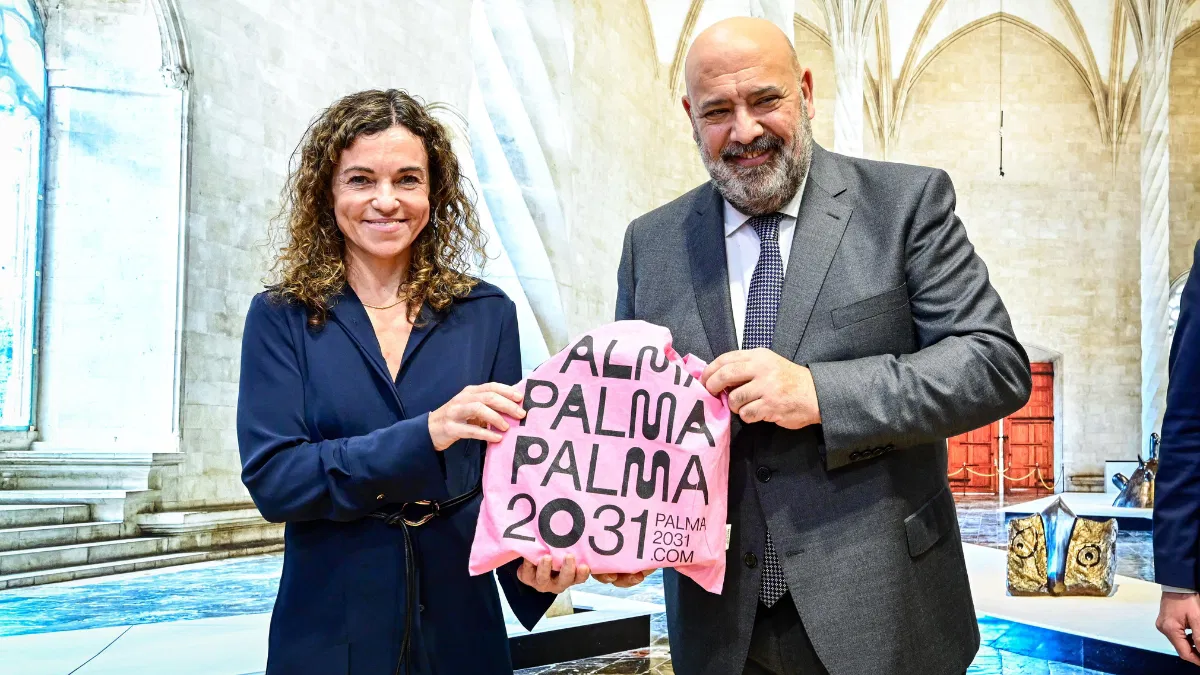Copyright euroweeklynews

Palma’s drive to position itself as a leading cultural destination took centre stage this week at the World Travel Market (WTM) in London, one of the most influential events in the global tourism calendar. Coinciding with the opening of the fair, Jaime Martínez Llabrés, the Mayor of Palma, unveiled the city’s official candidacy to become European Capital of Culture in 2031, outlining an ambitious vision that places culture, sustainability, and innovation at the heart of Palma’s future. Speaking at the Balearic Islands stand, Mayor Martínez Llabrés introduced the Palma European Capital of Culture 2031 project to a packed audience of travel professionals and international media. The presentation was supported by a strong institutional delegation including Marga Prohens, President of the Balearic Government; Llorenç Galmés, President of the Council of Mallorca; Jaume Bauzà, Minister of Tourism, Culture and Sports; and Marcial Rodríguez, the Island Councillor for Tourism. Representing the City Council were Javier Bonet, First Deputy Mayor and Councillor for Tourism and Culture; Fernando Gómez de la Cuesta, General Coordinator for Culture and Tourism; and Pedro Homar, Director of the Palma Tourism 365 Foundation. During his speech, Martínez Llabrés presented the core message of Palma’s bid: that culture can transform tourism, regenerate the territory, and redefine the future of the Mediterranean. He described the city’s vision as one that “unites culture, sustainability, and innovation to build a more humane and conscious model – one deeply connected to the environment.” Culture, sustainability and innovation at the heart of Palma 2031 The mayor highlighted that Palma’s candidacy reflects the preferences of a new generation of travellers who prioritise authentic, cultural and sustainable experiences. “Today’s visitors want more than beaches,” he explained. “They seek connection – through heritage, art, sport, and gastronomy.” Emphasising Palma’s readiness to lead a new era of cultural tourism, Martínez Llabrés pointed to the city’s vibrant creative calendar and high-quality infrastructure. The year 2025, he noted, had been marked by the acclaimed Paysage Miró exhibition, which featured more than 100 works across four major venues. The city has also hosted international artists such as Pedro Cabrita Reis, Jaume Plensa, and Peter Halley, alongside popular cultural events like Nit de l’Art (Night of Art), which he described as a symbol of “Palma’s creative energy.” But the bid is not only about exhibitions. The mayor detailed a series of transformative urban projects already underway to strengthen the connection between culture and community life. Among these is the renovation of Plaça Major, designed as an “urban amphitheatre” that integrates culture, mobility, and civic space. Another key initiative, the Palma Culture & Innovation Bay Plan, will redevelop the Nou Llevant district and seafront into a hub for creativity, sustainability, and the blue economy. Equally significant is the Bosc Metropolità, a large-scale green corridor linking Son Quint, Bellver Forest, the botanical gardens and other public spaces. This project, Martínez Llabrés said, symbolises “Palma’s commitment to a more sustainable and ecological future.” A collective bid with island-wide support Mayor Martínez Llabrés was clear that the 2031 bid is not just a city initiative, but a collective movement uniting institutions, businesses, cultural associations and residents across Mallorca. “Palma 2031 is a shared project that brings together every sector of society,” he said, adding that the proposal enjoys broad support from Balearic institutions, the business community, and local cultural networks. He emphasised that the city’s goal is to drive a positive transformation in tourism, one that appeals to visitors who value culture, gastronomy, heritage, and sports – experiences that enrich both travellers and residents alike. To achieve this, the mayor called for continued public investment in infrastructure and facilities to enhance the city’s appeal. He also reaffirmed Palma’s commitment to improving destination quality through initiatives such as the ban on tourist rentals, restrictions on party boats, and the conversion of illegal residential accommodations. “These measures are essential to protect the city’s identity and ensure a balance between tourism and local life,” he stated. As the Balearic capital strengthens its reputation as a cosmopolitan and creative hub, the bid for European Capital of Culture 2031 represents a milestone in Palma’s evolution. With support from across the islands and a clear focus on sustainable, experience-driven tourism, the city aims to redefine what it means to be a Mediterranean destination in the 21st century. For British expats and frequent visitors, Palma’s bid underscores the island’s growing appeal as more than just a beach escape – a city where art, heritage and innovation come together to shape the future of Mallorca and the wider Mediterranean region.



